January 15, 2024
New study links energy drinks to mental health problems in young people

We’ve all seen the vast array of colourful cans and bottles in the supermarket. Perhaps you are a fan yourself. But did you know that, in 2020, the energy drinks market was worth $45.8 billion globally? It is a large and expanding market, projected to grow at an annual rate of 8.2%, and reach a whopping $108.40 billion by 2031. Despite the fact that these products typically contain very high levels of both caffeine and sugar, and warnings on labels that they are ‘not recommended for children’, they are extremely popular with young people.
In fact, if you have offspring of a certain age, you are likely aware that 2023 was the year of Prime, a product popularised on social media. Initially, Prime was a hydration drink, but the range has since expanded to include an energy drink containing caffeine. It became so popular among teens that bottles were spotted selling for £18 in some shops (and more on resale sites), despite the recommended retail price being only £2.99.
Research from a few years ago had already found that up to a third of children in the UK consume caffeinated energy drinks on a weekly basis and ranked young people in the UK as the biggest consumers of energy drinks in Europe for their age group. 13% identified as high chronic consumers – having energy drinks four to five times a week, or more.
Published today (15th January), the most comprehensive evidence review to date has found that consuming energy drinks is associated with a wide range of risks, including increased risk of mental health issues among children and young people.
Our researcher of the month, Professor Amelia Lake, along with co-author Dr Shelina Visram and the rest of the team at FUSE (the Centre for Translational Research in Public Health) at Teesside University and Newcastle University, examined data from 57 studies of over 1.2 million children and young people from more than 21 countries. The study’s findings build on earlier research and highlight numerous risks associated with energy drinks.
Summary
What exactly are energy drinks?
A wide range of energy drinks can be found on retailers’ shelves, and there are equally wide variations in flavours, ingredient lists and caffeine content. However, it is not uncommon for a 500ml can of energy drink to contain 20 teaspoons of sugar and the same amount of caffeine as two cups of coffee. Research on the safety of caffeine has led to recommendations that children should only consume caffeine in moderation, and have no more than 3mg/kg body weight per day. As an example, a child weighing 30kg should have no more than 90mg caffeine. A small can of energy drink may contain more than this.
Commercially available energy drinks contain between 80mg – 500mg of caffeine per can (a standard can of Coca Cola has 34mg). The amount of sugar in energy drinks can be startling and even sugar-free variants contain artificial sweeteners, which have been linked to health issues such as diarrhoea. Many energy drinks also contain other stimulant ingredients, which currently have a poorly understood evidence base.
Why are they so popular?
Energy drinks are accessible and cheap. They are often promoted on gaming sites, are frequently linked to sports (especially extreme sports) and an athletic lifestyle, and they are particularly aimed at boys. In research asking young people why they drink energy drinks, taste, price, promotion, ease of access and peer influences were all identified as key factors.
What harms are they associated with?
Professor Lake and the team from Fuse have found that energy drink consumption is more common in boys than girls and that, in addition to physical health harms associated with these drinks (which include tooth decay, insulin resistance and headaches), these products are also associated with mental health harms, such as the increased risk of suicidal thoughts, psychological distress, anxiety, depression, stress and panic behaviours. The study also found drinking energy drinks to be associated with short sleep duration and poor sleep quality, poor academic performance, unhealthy dietary habits, risk-taking behaviours and substance use (including vaping).
Professor Lake is calling for action.
It’s important to note that the evidence reviewed is mostly cross-sectional (where data is collected at a single point in time), and so doesn’t prove that energy drinks are causing these negative outcomes. However, the research team advises policy makers to adopt a ‘precautionary principle’ to prevent harm to children and young people and calls for a ban on sales to children and young people under the age of 16.
A ban is not without precedent. A number of countries have attempted to regulate energy drinks, including bans on sales to under 18s in Lithuania and Latvia. The UK government ran a consultation on ending the sale of energy drinks to children in England several years ago, and also proposed this in their 2019 green paper, ‘Advancing our health: prevention in the 2020s’. Whilst 93% of respondents to the consultation supported restricting sales to under 16s, there has been no further action. In 2022, the devolved government in Wales launched its own consultation to ban the sales of energy drinks to under 16s. Many large UK supermarkets voluntarily banned the sale of energy drinks to children after a campaign fronted by Jamie Oliver, but they are still widely and easily available.
Implications
“Energy drinks are marketed to children and young people as a way to improve energy and performance, but our findings suggest that they are actually doing more harm than good. We have raised concerns about the health impacts of these drinks for the best part of a decade after finding that they were being sold to children as young as 10-years-old for as little as 25p. That is cheaper than bottled water. The evidence is clear that energy drinks are harmful to the mental and physical health of children and young people as well as their behaviour and education. We need to take action now to protect them from these risks.”
This new study adds to the growing body of evidence that energy drinks are harmful to the health of children and young people. Professor Lake and the team of researchers behind it say that it highlights the need for regulatory action to restrict the sale and marketing of energy drinks to children and young people.
Implications for parents:
Parents and carers have a significant role to play in helping their children stay safe and there is much that we can do at home to make them think twice before reaching for this apparent energy boost.
Look at ingredients together. Shining a light on sugar and caffeine content can be eye-opening. Open, clear and truthful dialogue is key.
Role model. Caffeine is ever-present, so think about your own habits. For example, do you drink a lot of coffee? How could this influence your child?
Cultivate critical thinking. Energy drinks are often promoted online on social media and gaming sites and are associated with sports sponsorship and an athletic lifestyle. Nudging children to consider the aims of this advertising and think critically about what they are being shown is a crucial skill.
Use caffeine as a talking point. Tolerance to caffeine can develop, as can dependence, so be open with your child about any issues you’ve experienced along these lines. You could even use this as a jumping off point into a wider conversation about coping strategies or even addiction.
Focus on sleep. Energy drinks can be the thief of sleep, which can cause physical and psychological damage. Educate young people about good sleep hygiene. Readers in the Tooled Up community can access numerous resources which will help, including our sleep audit activity.
Be alert for accumulation and mixing. Caffeine is such a common ingredient and it is easy to inadvertently double up – for example by having an energy drink plus a caffeine-containing cold remedy – and it is a common, and potentially problematic, mixer for alcohol for many young people.
Any school or parent looking for some information to share with children should download a fact-filled leaflet which the FUSE team has co-produced with young people. Tooled Up members can check out our Quick Guide to Energy Drinks, created in partnership with drugs education charity, the DSM Foundation.

Professor Amelia Lake
Professor of Public Health Nutrition
Professor Amelia Lake is a dietitian and public health nutritionist at Teesside University. Amelia is Associate Director of Fuse, The Centre for Translational Research in Public Health (http://fuse.ac.uk/) and is the Fuse lead on the NIHR School of Public Health research theme ‘Health Places, Healthy Planet’. Amelia’s research involves transdisciplinary collaborations to examine how the environment interacts with individual behaviours. Her current work is around healthy planning policy, food insecurity, energy drinks, workplace health, food systems, school food environments, the obesogenic environment and knowledge exchange. Amelia has extensive experience of working with policy makers, practitioners, non-specialist audiences as well as academics, and has produced training programmes as well as short films. Amelia also runs a small charity called The David Ashwell Foundation funding research into a rare lung diseases affecting newborn babies in memory of her son David.
Professor Amelia Lake
Professor of Public Health Nutrition
Scroll our research gallery

Dec 17, 2024
Intrinsic reward and word learning
From infancy onwards, humans display an innate motivation to acquire language and to communicate. We start acquiring words as babies and continue to do so throughout our lives. In fact, children are thought to learn over 3000 new words each year. However, relatively little work has focused on why we are motivated to learn words, particularly when it comes to adolescents. Adolescence is a period of great neurological change and sensitivity to learning. It's also marked by changes in reading behaviours. Whilst children become skilled readers between the ages of 10 and 18, this period is also associated with motivational changes in reading, with teens frequently showing a disinclination to read for pleasure. This change often coincides with the transition from primary to secondary school. Policy makers are keen to motivate adolescents to read for pleasure, arguing that it would improve not just literacy outcomes, but also result in substantial economic and societal benefit. Recent research has shown that adults find learning words to be intrinsically rewarding, and that this intrinsic reward facilitates the entrance of new words into long-term memory. Our researchers of the month, Professor Saloni Krishnan and Professor Pablo Ripollés, set out to establish whether the same is true for children and teens.
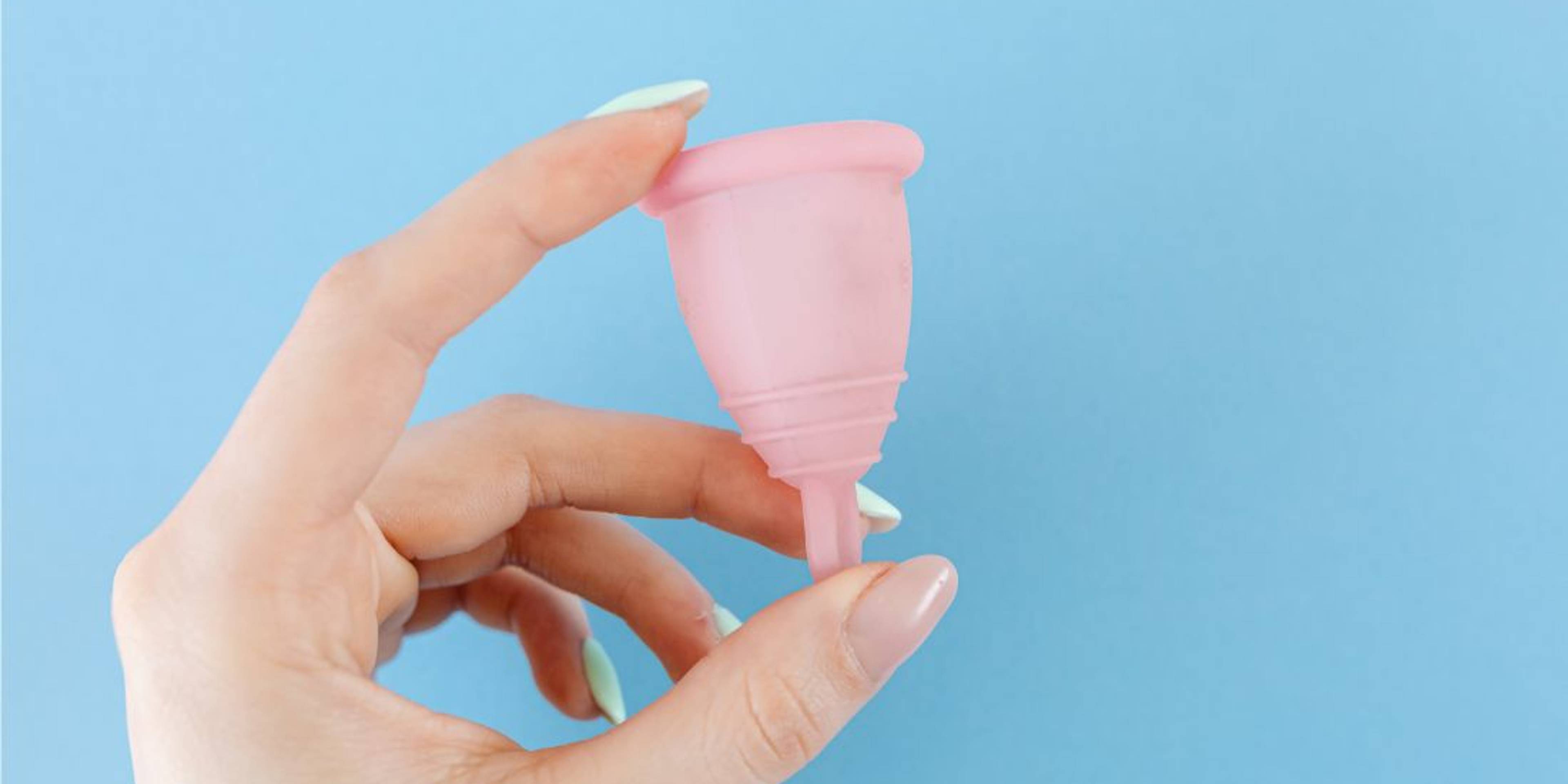
Nov 14, 2024
Delivering effective menstrual education
Research has shown that menstruation and menstrual cycle symptoms can be disruptive and detrimental to physical, mental and social wellbeing. As many as 93% of teen girls experience dysmenorrhea (severe cramps) and girls with a typical cycle experience 11 menstrual cycle-related symptoms on average, potentially including mood changes, stomach cramps and increased levels of anxiety and fatigue. Adolescents with problematic symptoms have reported a negative impact on school attendance, behaviour, confidence around peers and participation in physical activity. In the United Kingdom, evidence suggests that menstrual health education delivered by teachers generally focuses on menstrual cycle biology, as opposed to management of menstruation and menstrual cycle related symptoms. Our latest researcher of the month, Dr Natalie Brown, set out to understand young people’s perceptions of menstrual education in schools and their experiences of menstruating whilst at school, including within physical education. Her study involved nine focus groups with 10-15 year old female pupils attending primary and secondary schools across England and Wales. Pupils highlighted that, in their experience, menstrual education is limited and noted that the menstrual cycle impacts negatively on their school experience, affecting participation in sport and school attendance generally. Participants highlighted a need for more support and information regarding understanding and managing periods in school.

Oct 17, 2024
How influential is social media on young people's mental health?
A significant body of evidence tells us that young people's mental health has decreased over time, and a potential link between social media use and this mental health decline has triggered wide interest and concern. Research into social media use and mental health is being conducted at a rapid pace but, so far, findings are far from conclusive. Our new Researcher of the Month, Dr Margarita Panayiotou, adds to this body of work. She led a team of researchers who recently published a study involving thousands of young people in the UK. It set out to explore the interplay between social media use and teens' mental health, wellbeing and social life, and found that when considering the complex combination of multiple factors, things such as a lack of family support are arguably more important for adolescent mental health than social media use.
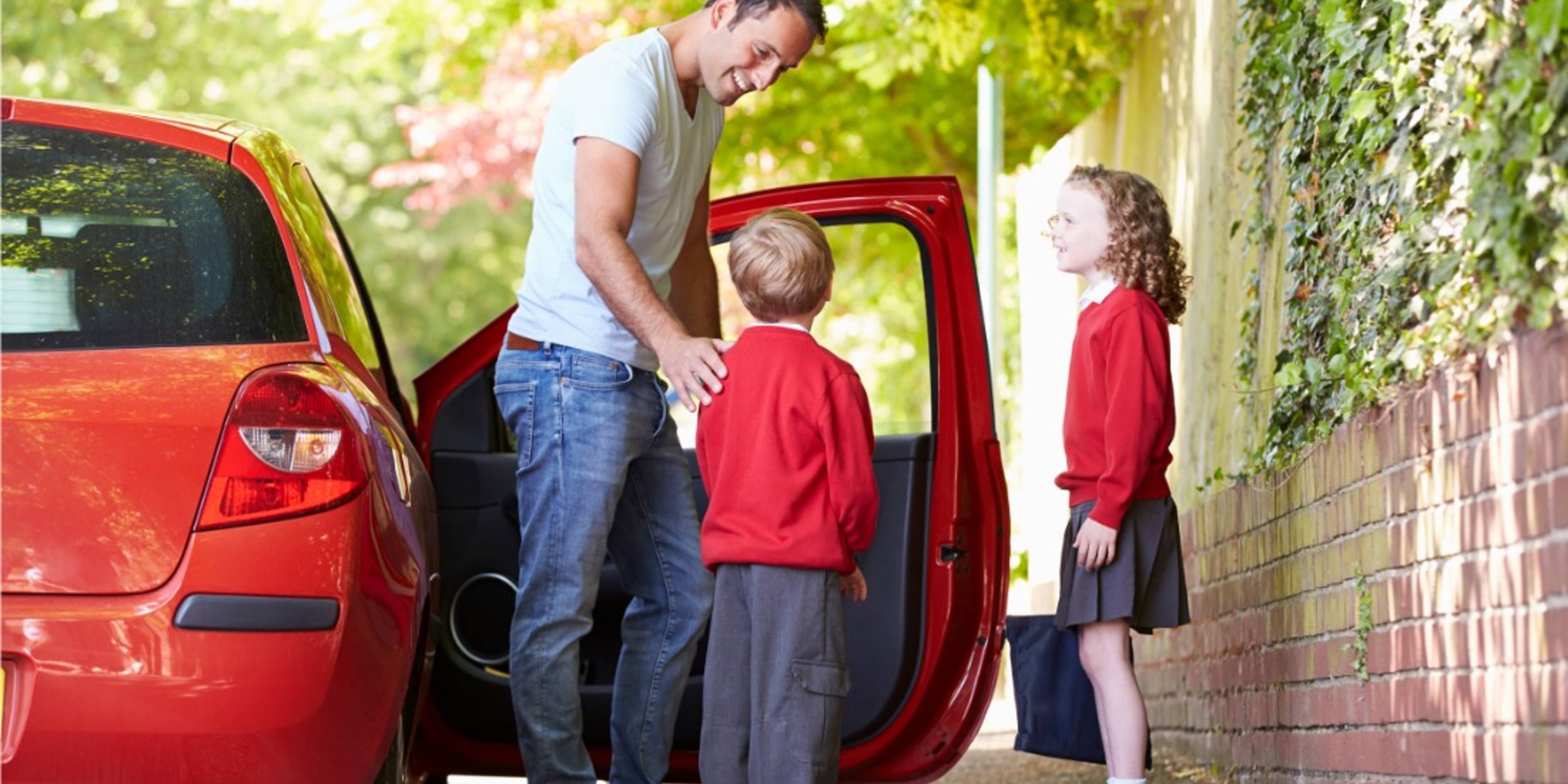
Sep 16, 2024
How do young children’s relationships with parents and teachers impact their adjustment to school?
We already know that children's relationships with their parents and teachers contribute to their school adjustment and achievement, and that positive, close relationships with adults are really important for a wide variety of children’s outcomes. However, few studies have examined interactions between these relationships or sought to address the nuances of children’s experiences in terms of how different relationships have different impact or influence. To address this, along with colleagues, our new Researcher of the Month, Dr Caoimhe Dempsey, has recently published an article which aims to examine the links between children's relationships with their mothers, fathers and teachers, and three domains of school adjustment: academic achievement, academic self-concept and behavioural adjustment in the classroom. By examining a range of data, the researchers sought to find out whether some children are more susceptible to the effects of the quality of their relationship with their teacher.
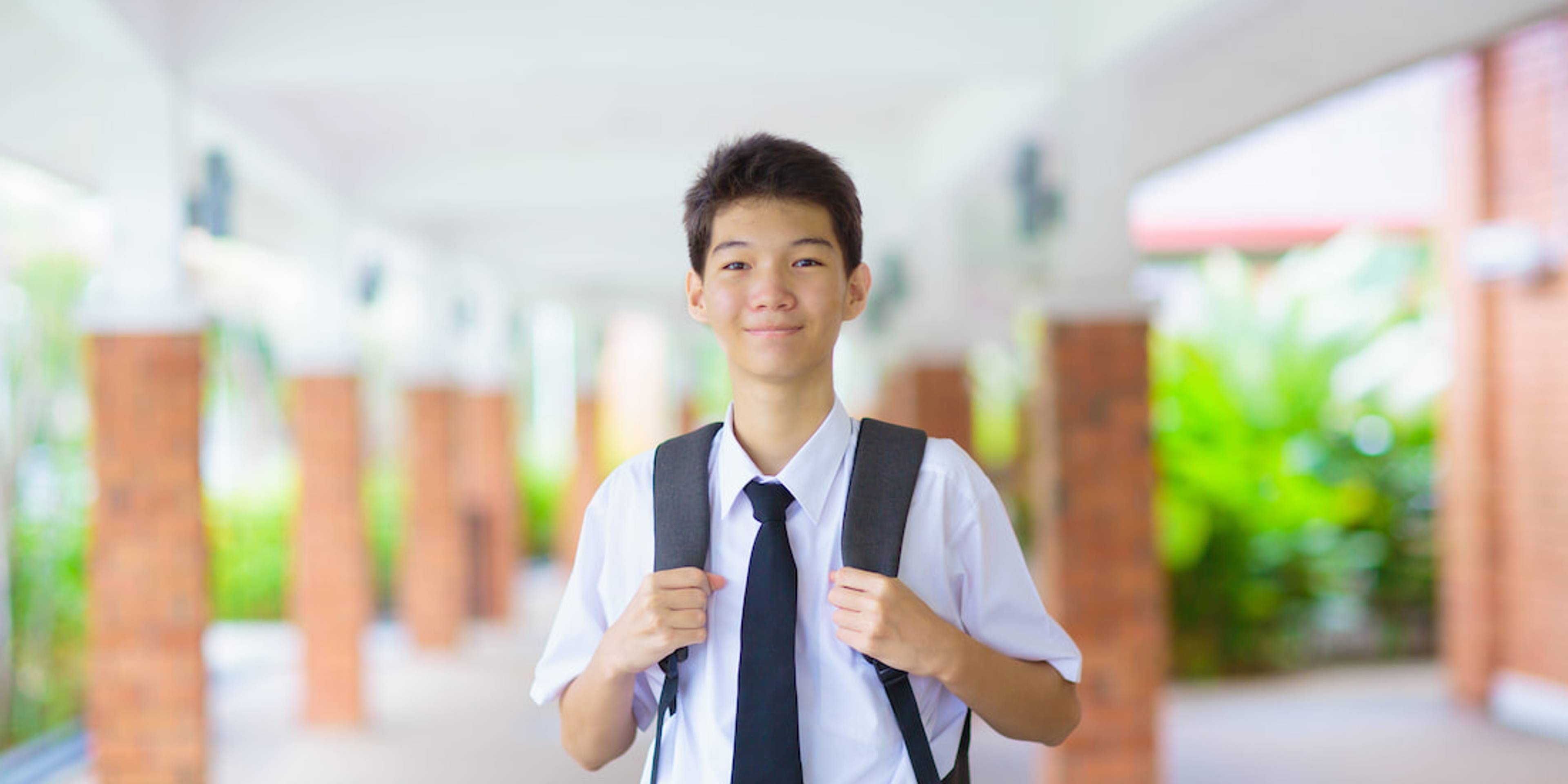
Aug 19, 2024
Supporting children's transition to secondary school
Supporting children to successfully transition from primary to secondary or senior school is vitally important. It's a big life change, which can leave both parents and children feeling excited and nervous in equal measure. At Tooled Up, we often use the analogy of a journey for the transitional experience. In fact, anyone who has attended or watched a talk with our founder, Dr Kathy Weston, is likely to have heard her say that we'd all want our children to be well prepared for any journey they go on, and that, as loving parents and carers, we wouldn't dream of sending them off on any journey without the right equipment, mindset and strategies to reach their destination safely and securely. Transition to a new school is no different. Research shows that there are numerous holistic protective factors that can help to ease transition. Conversely, it's also the case that problems with successfully transitioning to secondary school and subsequent lower levels of school connectedness are associated with lower education outcomes, school drop-out, higher levels of depression and anxiety, and increased involvement in criminal, violent and antisocial behaviour. Research also shows that these difficulties may not be equal across different socio-demographic variables, with children from underserved communities (including those from minority ethnic backgrounds and lower socio-economic status) and children with behavioural difficulties facing greater challenges during the transition to secondary school. It's therefore important for all parents and educators to consider how to make this transition as seamless as possible. Along with her co-authors, our Researcher of the Month, Dr Aurelie Lange, has published a new paper which evaluates the efficacy of a new UK-based online intervention called Level Up. In it, Dr Lange seeks to explore families' experiences of facilitators and barriers to engagement and change.

Jul 15, 2024
The impact of digital experiences on teens with mental health vulnerabilities
Over the last decade, digital developments have led to major changes in the ways that teens learn, work, play and interact with others. Digital access is a daily reality for most children and young people. Nine in 10 children in the UK now own a smartphone by the time they reach the age of 11, and the large majority of children aged 11 now use social media (78%) and have a social media profile (72%), despite being younger than the minimum age requirement for many platforms. By the time teens are 17 years old, 97% will use social media. Coincident with this change, adolescent mental health problems have also increased in prevalence. It is therefore no surprise that much research has focused on the relationship between digital experiences and adolescent mental health. However, comparatively few studies have directly compared the experiences of teens with mental health conditions meaning that some key questions remain unanswered. Do adolescents with pre‐existing mental health conditions differ in terms of why and how they engage with the digital world compared to peers without such difficulties? Are specific mental health conditions linked to different patterns of digital usage? What role do such differences play in the development and escalation of these conditions? In a recent paper, our Researcher of the Month, Dr Kasia Kostyrka-Allchorne, and her colleagues, explore what the evidence shows about the digital experiences of teens with mental health vulnerabilities.
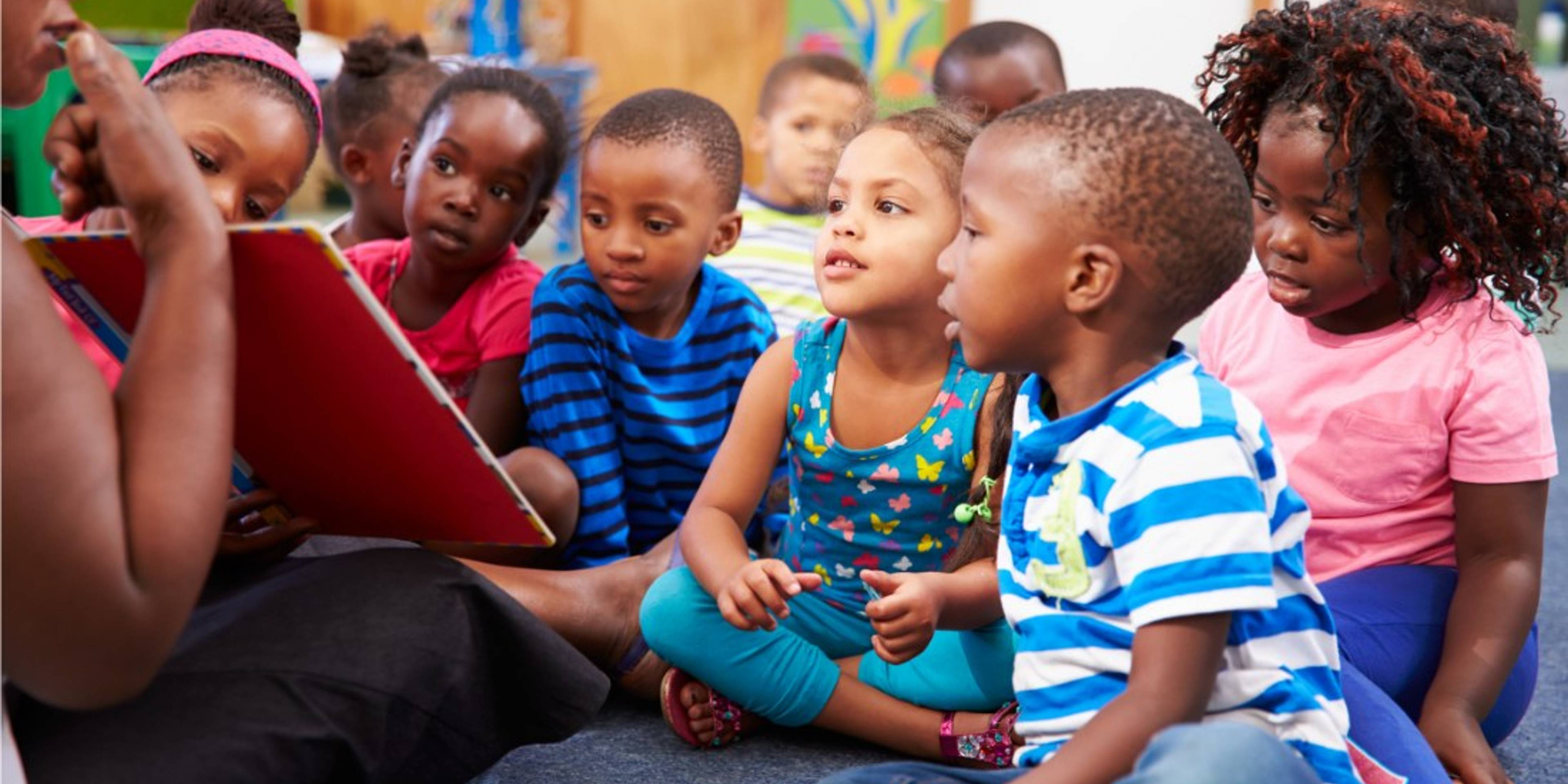
Jun 13, 2024
NELI Preschool: a new oral language enrichment programme for preschools and nurseries
Oral language skills provide the foundation for formal education, yet many children enter school with language weaknesses. Oral language is fundamental to children’s overall development and educational success. It is linked to all higher level cognitive skills and is pivotal for literacy development, and education more generally. It’s also vitally important for children’s social and emotional development. The term oral language refers to a complex set of skills that should ideally work seamlessly together to enable children to communicate with others by producing and understanding language. It’s an umbrella term, encompassing numerous component skills which include having a good vocabulary and the grammatical ability to combine words effectively to convey meaning, along with an understanding of cause and effect, memory skills and the ability to plan what to say and what not to say. Language skills develop rapidly between the ages of 3–6 years making preschool an excellent time to intervene to support language development. Because of this, Dr Gill West and her colleagues – as part of a team headed by Professor Charles Hulme – have developed and evaluated the efficacy of a new language enrichment programme, the Nuffield Early Language Intervention—Preschool (NELI Preschool), which is delivered to children the year before they enter formal education. The programme combines language enrichment for all children, with additional targeted support for those with language needs, potentially narrowing the gap in language skills associated with social disadvantage.
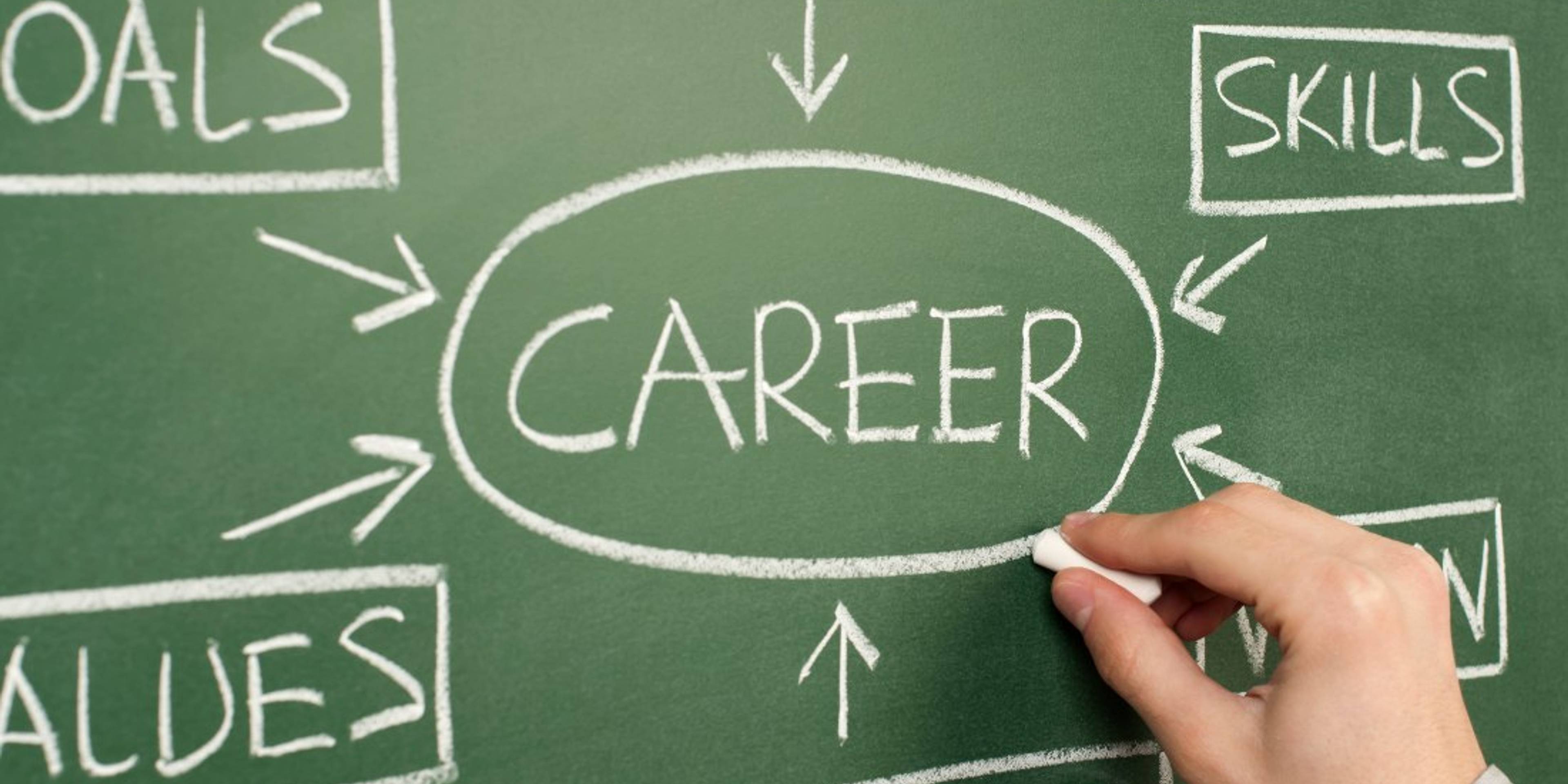
May 16, 2024
"More is more”: the impact of careers education on later outcomes
Does school-based careers education, advice, information and guidance (CEAIG) have any influence on later life outcomes? A body of research has shown that careers education and activities can play an important role in helping young people to prepare for and navigate transitions into the world of work. It has also shown that the quality and quantity of provision can vary considerably, with those who are most socially disadvantaged experiencing the least and lowest quality provision. However, until now, the impact of careers education on later life outcomes has remained unclear. A new paper written by Dr Julie Moote and colleagues seeks to find out what relationship there is between young people’s perceptions of the quality and quantity of school-based careers activities and education experienced at the age of 14–16 and their outcomes several years later, when they are 21–22. Findings are discussed in the light of recent legislation relating to careers support in England, which highlights how important it is to ensure that the needs of all young people transitioning into the workforce and adulthood are met.
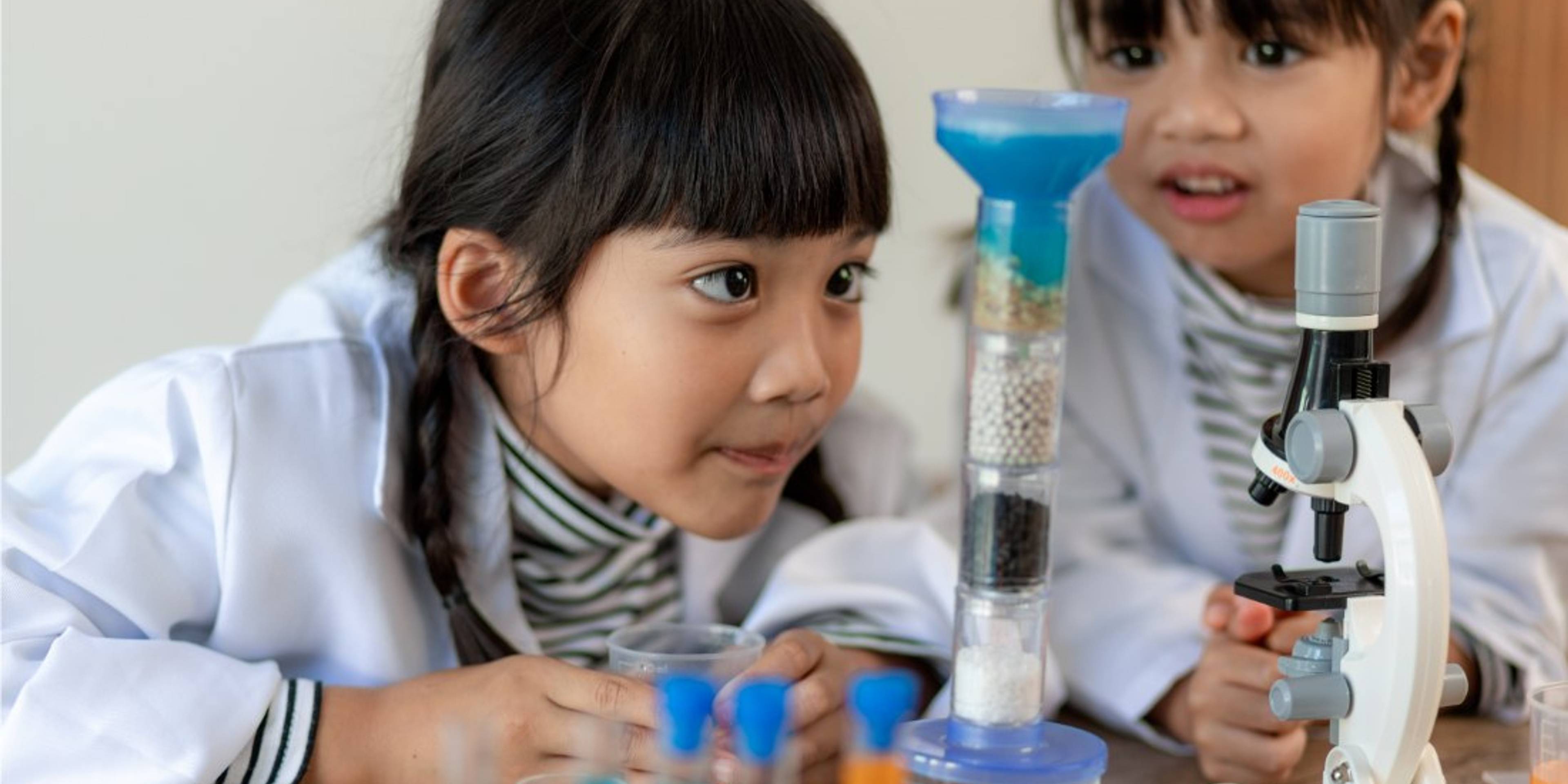
Apr 11, 2024
STEM in preschool settings: do teachers’ scientific questions differ by child gender?
In the US, as in numerous countries including the UK, female and non-White students are underrepresented in science, technology, engineering, and maths (STEM) fields. A significant body of research demonstrates significant gender disparities in STEM achievement, participation and attitudes from early childhood, and that these continue to widen as children get older. Children are strongly influenced by their early environments and conversations with adults. Whilst gendered messages around STEM are now rarely explicit – children are unlikely to be told that girls can’t be scientists – they may receive more subtle messages about representation and belonging. These differences may contribute to children’s beliefs about their own STEM ability, their performance in STEM activities, and their decision to pursue a career in STEM. US researcher, Dr Sona Kumar, and her colleagues sought to explore whether there are subtle differences in the messages that preschool educators send girls and boys about STEM. Previous, older research with caregivers found that parents tended to provide more scientific explanations to boys than to girls. Studies have also found that, within classroom settings, boys often receive more attention from teachers on science-related subjects than girls. Dr Kumar predicted that teachers would direct more scientific questions to boys than girls and tested this by observing a preschool setting.
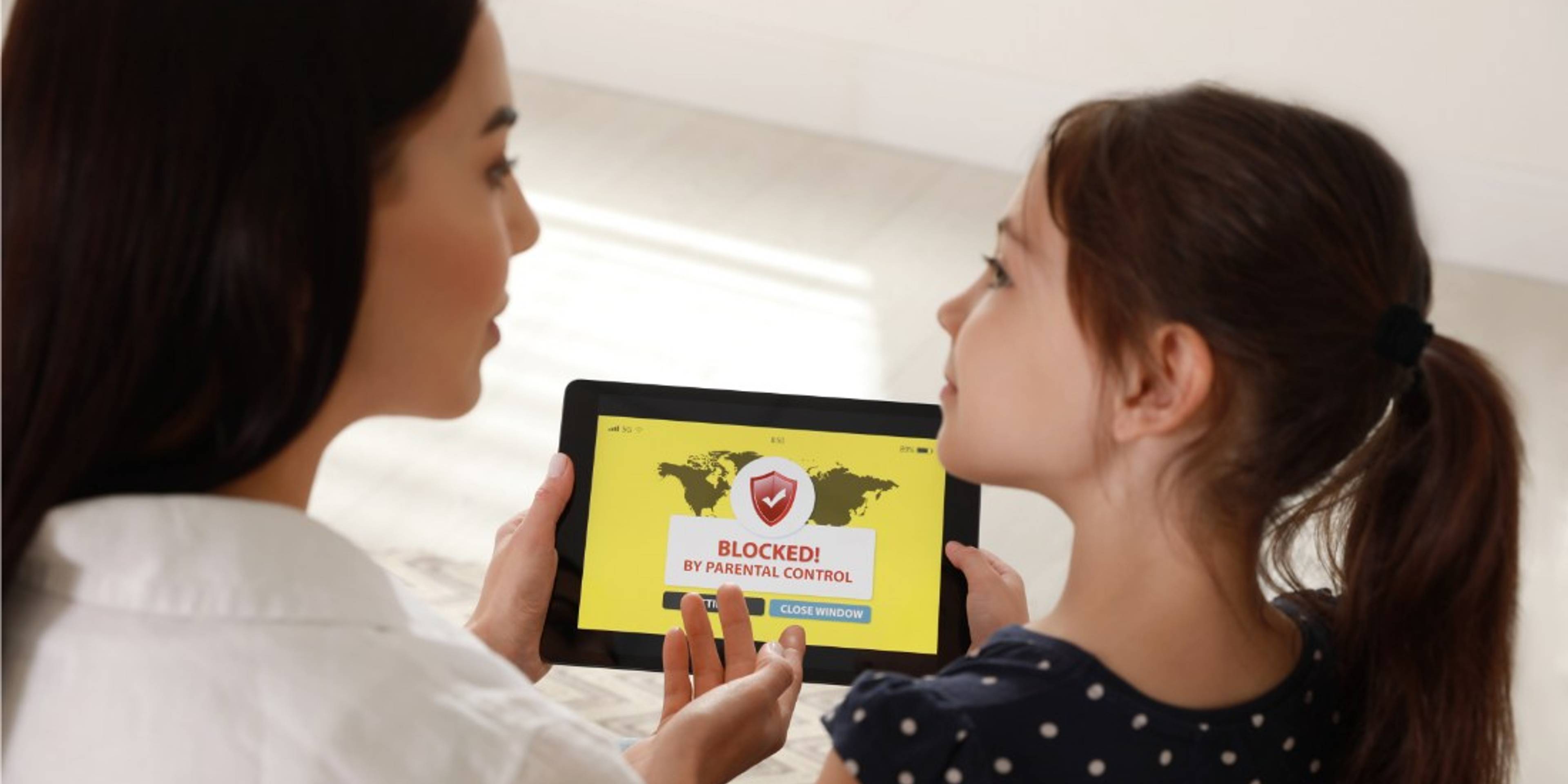
Mar 14, 2024
Do parental controls work and what are the pros and cons?
Policymakers and technology companies promote the use of parental control tools to ensure children’s safety in our digital age. In recent years, there has been considerable industry investment in this new generation of technical child protection measures, designed to help parents and carers to control what their children see and do online. Some of these tools operate at the level of the device (such as a phone or tablet). Other tools are embedded into specific services, such as Snapchat, or streaming services such as Netflix. Others work at the level of the operating system, such as IOS, Android or Windows, or are provided by your broadband company. Control tools vary in functionality. Some allow parents to limit the amount of time that children spend on a device or particular app. Others can track their child’s location. Internet filters block certain categories of content (violence, adult content or gambling, for example), or specific websites. There are other tools that track children’s online activity (search history, online purchases or activity logs, for example) and provide reports or real-time alerts to parents. Some tools track activity and interactions on social media platforms and can limit children’s contact with unknown users. But how many families actually make use of them, and do they work? Our Researcher of the Month, Dr Mariya Stoilova, and her colleagues, reviewed all available evidence in a recently published study.